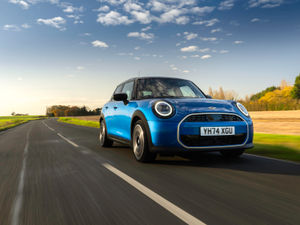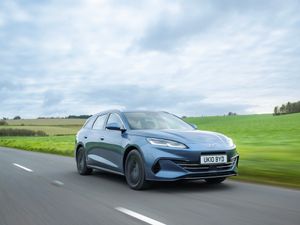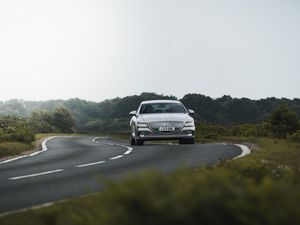Long-term report: Is the Mazda 2 Hybrid a car with a false identity?
Jon Reay has been checking out one of Mazda’s most compact models.
Say hello to our latest long term test car: the Mazda 2 Hybrid. And no, we’ve not used a photo of a Toyota by mistake – this really is a Mazda. Or at least, that’s what it says on the boot lid.
The more observant of you might’ve noticed that this particular car is a bit of an imposter. Yes, the 2 Hybrid might claim to be straight out of Hiroshima – Mazda’s home city in Japan, if you were wondering – but it does share rather a lot of parts with the Toyota Yaris. Which is to say, almost all of them.
To Mazda’s credit, they have changed a few bits and pieces to differentiate the two cars. The design of the grille – shaped to resemble cars like the 3, CX-5 and so on – was dreamed up in Mazda’s European design studio in Frankfurt. As was the bit of body coloured plastic between the rear lights, which replaces the Yaris’s gloss black alternative.

Our car is a near-top spec Homura model, which happens to get some black alloy wheels that are also unique to the Mazda – and we must say, they look rather smart. Beyond that though, there’s very little to set the 2 Hybrid apart from its Toyota twin.
Collaborations like this are nothing new in the automotive world, of course. Designing and building cars is an expensive business, and so it’s often more financially viable to pool your knowledge with another company.

In the case of this car, Mazda found themselves in need of a small hybrid car to slot into its showrooms – not something they’ve ever tried making before. Rather than spending billions to reinvent the wheel, they turned to a company that knows a thing or two about hybrid cars: Toyota.
So here you have it: the Mazda 2 Hybrid, designed largely by Toyota, built by Toyota at its factory in France, but sold to you by your friendly Mazda dealer.
Which does rather beg the question, why would you choose this over a near-identical Yaris? That’s something we’re hoping to answer in the next few months as we put the 2 Hybrid through its paces.

I’m pleased to say that things are off to a very good start. If you’re going to base your supermini on another existing one, you could certainly do a lot worse than a Yaris. It’s a car that’s really now got into its stride, not only in terms of how its clever hybrid drivetrain works, but also as a package.
The 2 Hybrid inherits a lot of positives then: it looks good, it’s got a well-designed and spacious interior, and on paper at least it’s incredibly fuel efficient. On top of that, if Toyota’s past efforts are anything to go by, it should be incredibly reliable too.
Does it actually feel like a Mazda, though? Not really, but then why would it – not a single part on the 2 Hybrid is shared with any other Mazda.

That said, while it doesn’t technically share a bloodline to the likes of the MX-5, this does seem to be a car that handles quite neatly. It’s even pretty quick for a car of this type: the electric motor of its hybrid system giving some much needed zing as you accelerate away from a standstill.
Time will tell on what the 2 Hybrid is like to live with, but first impressions are certainly positive. I think our car, painted in ‘Glass Blue’, looks spot on – and I think I prefer the design of the Mazda front end to Toyota’s original look.
The real question will be: which one is the better buy? I’d like to be able to say that it doesn’t really matter – because whichever you pick, you’re still getting fundamentally the same product. But things aren’t quite as simple as that, as I’m sure we’ll come to explain over the coming weeks and months. Was the 2 Hybrid the right choice? I suppose we’ll find out soon enough…





